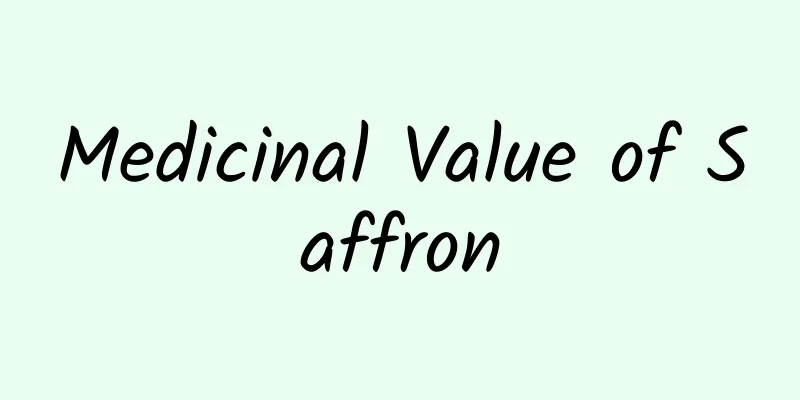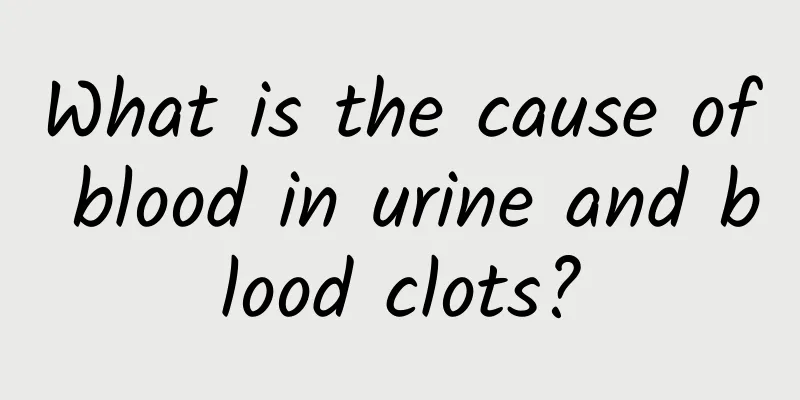Medicinal Value of Saffron

|
Saffron can be used as a medicine, so you can imagine that its nutritional value is very high. Some special groups are not allowed to eat foods containing saffron, such as pregnant women. We know that their bodies are more sensitive than those of normal people. Therefore, no matter what kind of food it is, as long as it contains nutrients that are not good for pregnant women, it is not recommended to eat it. So it is very important to understand the value of eating. The nutritional value and efficacy of different foods are different, so only by understanding them correctly can we use them well. We eat foods because they contain these nutrients and are beneficial to the body. So what are the medicinal values of saffron? Medicinal value Every 2 grams of saffron contains 11.9% water, 0.7 grams of carbohydrates, 2.5 milligrams of phosphorus, and 7.2 milligrams of potassium, and can provide 13 kilojoules of calories. Saffron contains a bitter substance called crocin. Its dried stigma is sweet and mild in nature, and can promote blood circulation, remove blood stasis, relieve depression and relieve pain. It is used to treat depression, chest tightness, vomiting blood, typhoid fever, fright and confusion, amenorrhea, blood stasis and irregular menstruation, postpartum lochia, pain caused by blood stasis, measles, and injuries from falls. It is used as a sedative and carminative abroad. Promote blood circulation and remove blood stasis, cool blood and detoxify, relieve depression and calm the mind. Warm poison causes rashes, depression, fullness of stomach, palpitations and madness. Element The main ingredient is crocin (C16H26O7). The coloring substance is crocin (C44H64O26·H2O). The chemical components include crocin-1~4, picrocrocin, crocetin dimethyl ester, α-crocetin, safranal, volatile oil, etc. Its stigma contains a variety of carotene compounds, with a content of about 2%, including crocin-1, crocin-2, crocin-3, crocin-4, trans- and cis-crocetin dimethyl ester, α-, β-carotene, α-crocetin acid (α-crocetin), zeaxanthin, lycopene, and picrocrocin. It also contains 0.4% to 1.3% volatile oil, the oil mainly contains safranal, which is the decomposition product of picrocrocin, followed by eucalyptol, pinene, etc.; in addition, it contains isorhamnetin, kaempferol, vitamin B1 and vitamin B2. effect 1. Effects on liver and gallbladder. Saffron has a choleretic effect, and crocin can lower cholesterol and increase fat metabolism. It can be used in combination with traditional Chinese medicines such as hawthorn, cassia seed, and Alisma orientalis for the treatment of fatty liver. Saffron improves microcirculation, promotes the secretion and excretion of bile, thereby reducing abnormally elevated globulin and total bilirubin, and can be used to treat cirrhosis after chronic viral hepatitis. Crocetin has a chemopreventive effect on early acute liver damage caused by toxic substances and has the potential to be used in the treatment of chronic cholecystitis. 2. Effects on the circulatory system. Saffron extract has a stimulating effect on breathing. Under conditions of hypoxia at normal pressure, it can enhance the oxygen metabolism function in cells, improve the heart's tolerance to hypoxia, and to a certain extent reduce the damage to myocardial cells caused by strenuous exercise, thus having a certain protective effect on the heart. 3. Immunomodulatory effect. Saffron is clinically used to treat a variety of chronic diseases in the human body. Through its effects of promoting blood circulation and removing blood stasis, antibacterial and anti-inflammatory, it enhances the body's endurance and lymphocyte proliferation response, thereby improving the body's cellular immunity and humoral immunity, and plays a role in adjusting the flow of human qi and balancing the body's yin and yang. 4. Anti-tumor effect. Modern research has found that saffron preparations have significant anti-cancer capabilities. The above introduces the medicinal value of saffron. It turns out that eating it can effectively help us protect our liver function. For some women with menstrual problems, eating saffron can help regulate their menstrual period. The most important thing is that eating saffron can effectively increase my physical strength, so that our body will be more energetic. |
<<: What are the side effects of saffron?
>>: Can saffron be used to make wine?
Recommend
Thrombolytic therapy
Thrombolytic therapy is a relatively common metho...
Do crayfish have parasites?
Many people like to eat crayfish. Crayfish is ric...
What to do if you always want to masturbate
Nowadays, there may be a lot of topics about mast...
How long does it take to go to the toilet after drinking senna?
Senna is a relatively common Chinese medicine. It...
What should not be eaten for cholecystitis? Pay attention to your diet
Cholecystitis is a common liver and gallbladder d...
What causes bradycardia?
Bradycardia refers to a relatively slower heart r...
How to Treat an Enlarged Prostate
Prostate enlargement is a common disease , it wil...
What to do if the fracture does not heal
The phenomenon of non-union of fractures causes g...
Can Polygonum multiflorum be soaked in wine?
Many people are already familiar with Polygonum m...
What is the best medicine for typhoid fever?
When it comes to typhoid fever, many people are f...
The effects of silica on the skin
Silica is a natural chemical substance that exist...
How to consume American ginseng
When it comes to American ginseng, many people ma...
Treatment of left ventricular hypertrophy
There are atria on both sides of the human chest ...
Which acupoints should be massaged for frozen shoulder
Computers bring us convenience but also bring us ...
What diseases does Huoxue Tongmai Capsule treat?
What disease does Huoxue Huayu Tongmai Capsule tr...









